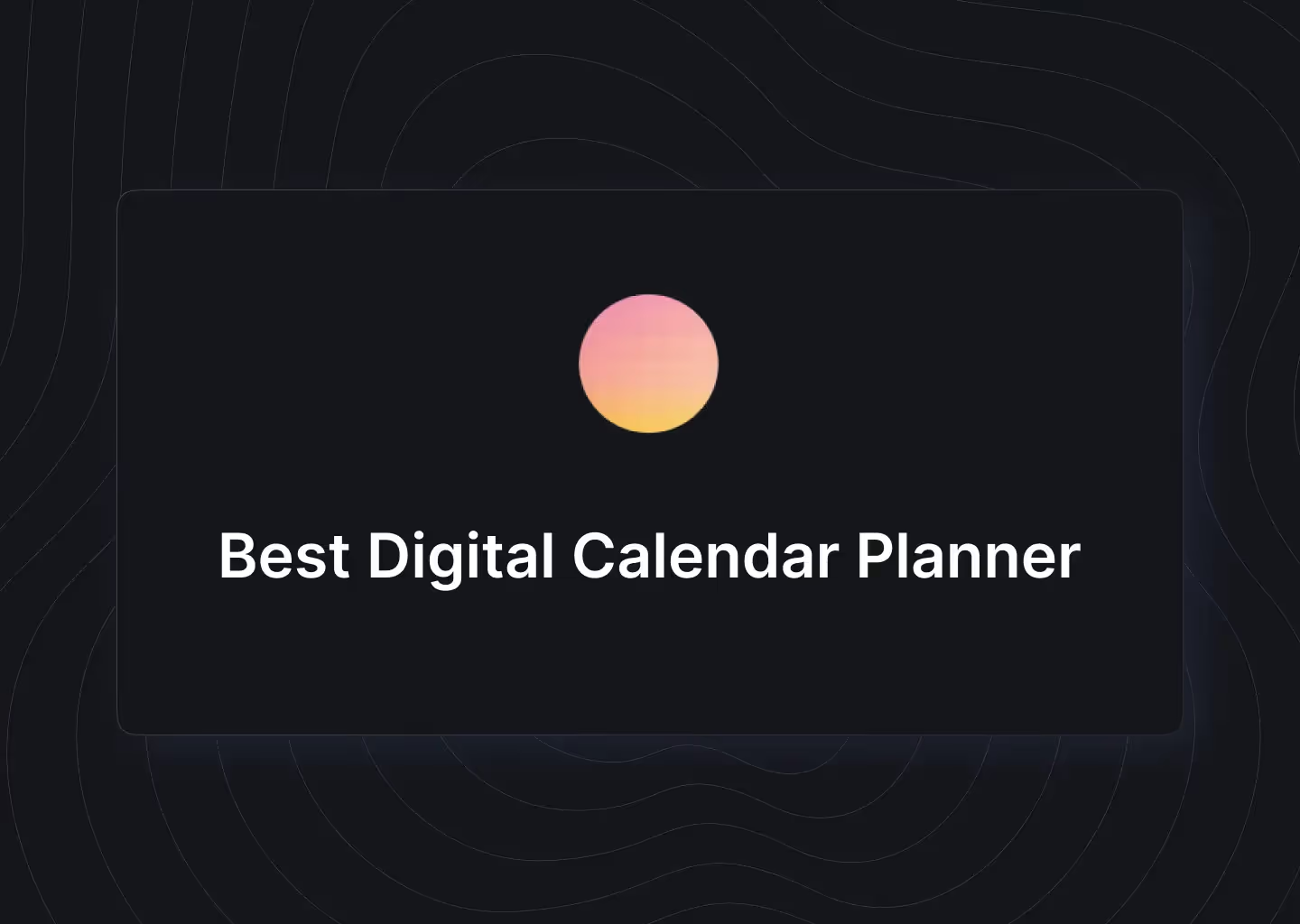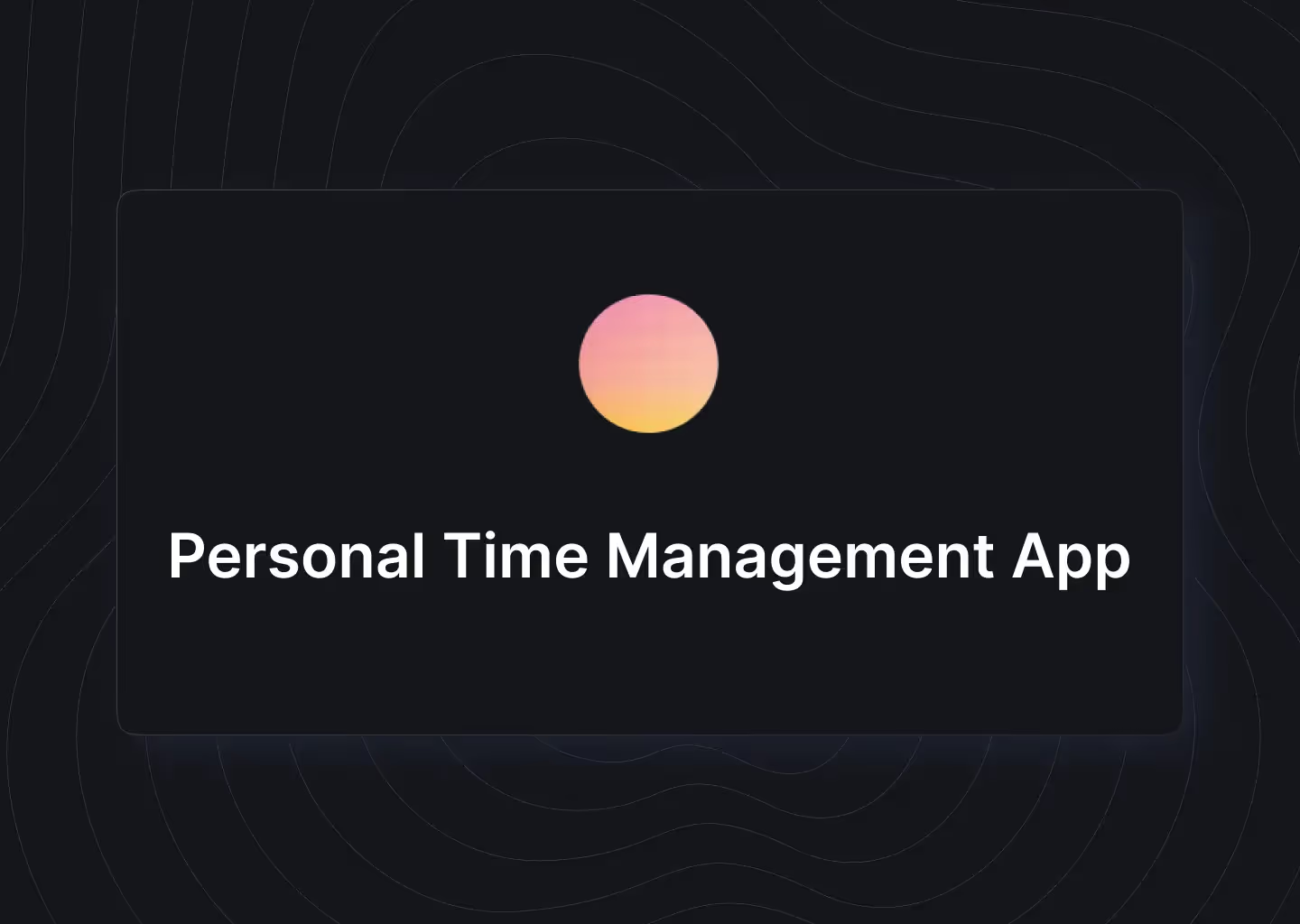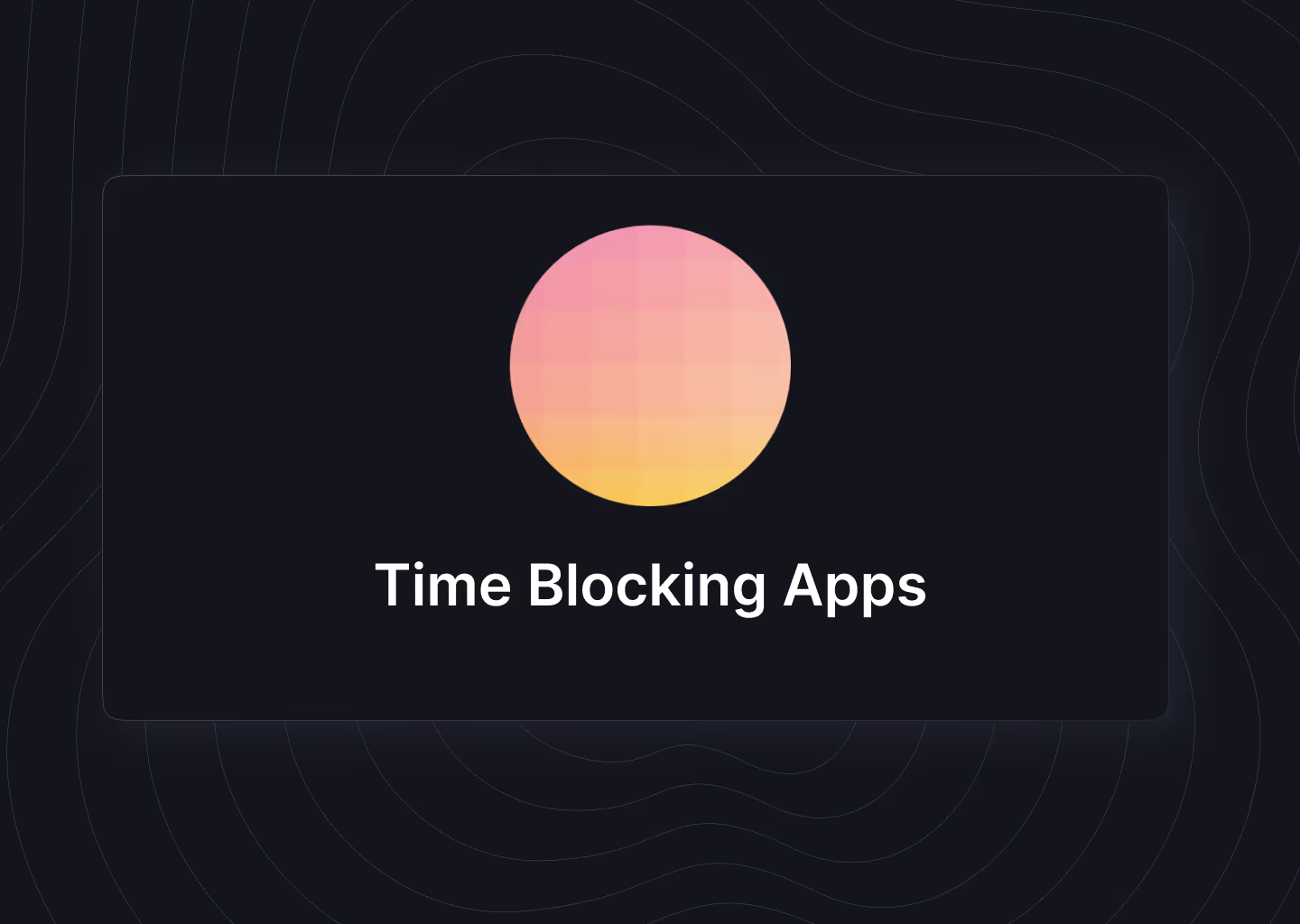→ Proteja o trabalho profundo em primeiro lugar, depois encaixe tudo o resto à sua volta: os maiores ganhos vêm de agendar blocos de 2–3 horas sem interrupções durante o seu pico de energia, e agrupar trabalho superficial em janelas contidas para evitar mudanças de contexto.
→ Use Morgen para tornar o trabalho profundo um hábito repetível: ideal para profissionais do conhecimento que querem blocos de trabalho profundo recorrentes (Frames), colocação de tarefas assistida por IA, e calendários/tarefas unificados para que o tempo de foco não seja consumido por reuniões.
→ Adicione fricção às distrações com bloqueadores como Cold Turkey ou One Sec: ideal para pessoas cuja concentração é prejudicada pelas redes sociais ou verificações impulsivas—as ferramentas funcionam melhor quando associadas a rotinas claras, não apenas à força de vontade.
→ Escolha um "centro de pensamento" (Notion ou Obsidian) baseado na forma como trabalha: Notion é adequado para planeadores estruturados e investigadores que querem tudo num único lugar; Obsidian é ideal para escritores e pensadores que valorizam notas locais, sem distrações e ligadas.
A maioria das pessoas não sofre com falta de tempo, sofre com falta de foco. Entre notificações, reuniões e feeds infinitos, a nossa atenção fica fragmentada. A verdadeira escassez não são as horas, são períodos ininterruptos de concentração significativa.
Este guia mostra-te como recuperá-los: a ciência, as estratégias e as ferramentas que podes usar para alcançar trabalho profundo de forma consistente.
Trabalho profundo vs trabalho superficial
Cal Newport, o especialista líder em trabalho profundo, define trabalho profundo como "atividades profissionais realizadas num estado de concentração livre de distrações que levam as tuas capacidades cognitivas ao limite.".
Por regra, o trabalho profundo precisa de tempo e espaço dedicados para te permitir abordar a atividade com esforço prolongado. Pensa em programação, escrita, design ou estratégia. Todas são atividades de trabalho profundo que exigem elevado foco cognitivo. Por outro lado, responder a emails, verificar Slack ou lidar com tarefas administrativas é trabalho superficial. O trabalho superficial é necessário, mas não exige concentração profunda para ser executado, por isso os teus períodos de maior energia não devem ser desperdiçados nele.
Um corpo crescente de investigação enfatiza a importância do trabalho profundo dedicado.
Primeiro, a nossa atenção é mais frágil do que pensamos. O nosso trabalho é altamente fragmentado. 57% dos episódios de trabalho de trabalhadores do conhecimento regulares foram interrompidos, levando a mudanças frequentes de tarefas. A mudança de tarefas, como tal, altera a forma como trabalhamos. quando interrompidos, tendemos a acelerar para compensar, terminando a tarefa de trabalho profundo mais rapidamente mas ao custo de mais stress, frustração e pressão de tempo.
Segundo, o custo do trabalho superficial tem um custo cognitivo. A investigação clássica de memória sugere que podemos manter ativamente aproximadamente 5 peças de informação de cada vez. Fazer malabarismos com tarefas rapidamente sobrecarrega a memória de trabalho. Quando mudamos de tarefas, as nossas mentes frequentemente ficam parcialmente presas à anterior. Este resíduo de atenção é especialmente persistente se a tarefa anterior foi deixada inacabada ou realizada sob pressão de tempo, e, em última análise, prejudica o nosso desempenho na tarefa seguinte.
O trabalho superficial é inevitável, mas se não protegeres blocos consideráveis e livres de interrupções, a tua atenção trabalha contra ti. A melhor forma é dar as melhores horas do teu cérebro ao trabalho profundo e deixar o resto para tarefas de trabalho superficial.
Por que o trabalho profundo é importante
O trabalhador médio tem 1h e 12m de tempo produtivo por dia sem ser interrompido por email, prejudicando o foco e o fluxo. A neurociência da multitarefa revela desempenho mais lento, aumento das hormonas de stress, e pontuações de bem-estar mais fracas.
Preocupante, mas há uma chance de recuperação. O trabalho profundo oferece dividendos compostos. Praticar foco sustentado fortalece as bainhas de mielina do cérebro que aceleram a transmissão neural e a aquisição de competências. É por isso que músicos de elite, atletas e programadores treinam todos em blocos mais longos e deliberados.
Sem trabalho profundo, arriscas ciclos de trabalho ocupado e burnout. Com ele, ganhas domínio mais rapidamente e produces resultados que se compõem ao longo do tempo.

Técnicas de trabalho profundo
O foco não é encontrado, é desenhado através de rituais e limites, e uma das técnicas mais eficazes é o bloqueio de tempo. Reservar duas a três horas ininterruptas no teu calendário. Ao praticar blocos longos de tempo de foco, evitas um imposto neural que vem da mudança de contexto. Isto ativa múltiplas redes cerebrais concorrentes, tornando a recuperação para um estado focado mais lenta cada vez (20 minutos em média).
Outra técnica é uma mudança de localização: atribuir um lugar específico apenas para trabalho profundo. Por exemplo, praticar trabalho profundo onde de outra forma farias atividades divertidas distrai a tua mente da tarefa em questão, uma vez que a atividade habitual realizada no local é diferente. As pistas ambientais dedicadas reduzem o custo de força de vontade de começar tarefas difíceis, que podes usar como impulso inicial para terminar a tarefa também.
A seguir está o agrupamento de tarefas. Agrupas trabalho superficial num aglomerado de tarefas para evitar um dia fragmentado. Desta forma, abordas tarefas semelhantes em janelas de tempo dedicadas e manténs o culpado da mudança de contexto afastado.
O minimalismo digital é uma solução moderna para o problema contemporâneo da dependência de telemóvel ou redes sociais. Visa cortar distrações digitais implacavelmente. Estudos mostram que até a presença de um smartphone na tua secretária reduz a capacidade cognitiva. A solução é deixar os dispositivos noutro quarto ou instalar aplicações que "simplificam" a interface do dispositivo para que as aplicações instaladas não sejam tão atrativas de usar.
Finalmente, o alinhamento de energia garante que abordas trabalho profundo quando estás mais alerta. A investigação do ritmo circadiano explora as mudanças físicas, mentais e comportamentais que experimentamos ao longo de um ciclo de 24 horas. As técnicas não são apenas sobre disciplina, são sobre engenharia do teu ambiente e horário para que possas focar-te.
📖 Escrevemos um guia aprofundado sobre como encontrar o teu ritmo circadiano, e podes lê-lo aqui.
As regras de Cal Newport para trabalho profundo
As regras de Cal Newport guiam-nos sobre como praticar trabalho profundo de forma sustentável a longo prazo.
- Trabalha profundamente: cria rituais e estabelece limites claros. Por exemplo, começa cada sessão fechando o teu email, silenciando o teu telemóvel e definindo um temporizador para um bloco de 3 horas.
- Abraça o tédio: treina o teu cérebro para resistir ao impulso de dopamina da novidade. Deixa deliberadamente lacunas no teu trajeto sem ouvir podcasts ou música nova para praticar estar com a quietude.
- Remove drenadores de atenção: usa ferramentas como Freedom ou configura as tuas contas para que o login exija múltiplos passos extras.
- Drena o superficial: minimiza tarefas de baixo valor e usa a tua energia máxima em trabalho profundo. Agrupa emails administrativos num único slot de 30 minutos no final do dia em vez de espalhá-los pelas tuas melhores horas.
Estas não são dicas pontuais. Representam uma mudança de estilo de vida em direção ao trabalho significativo e focado.
Melhores ferramentas para trabalho profundo
Morgen
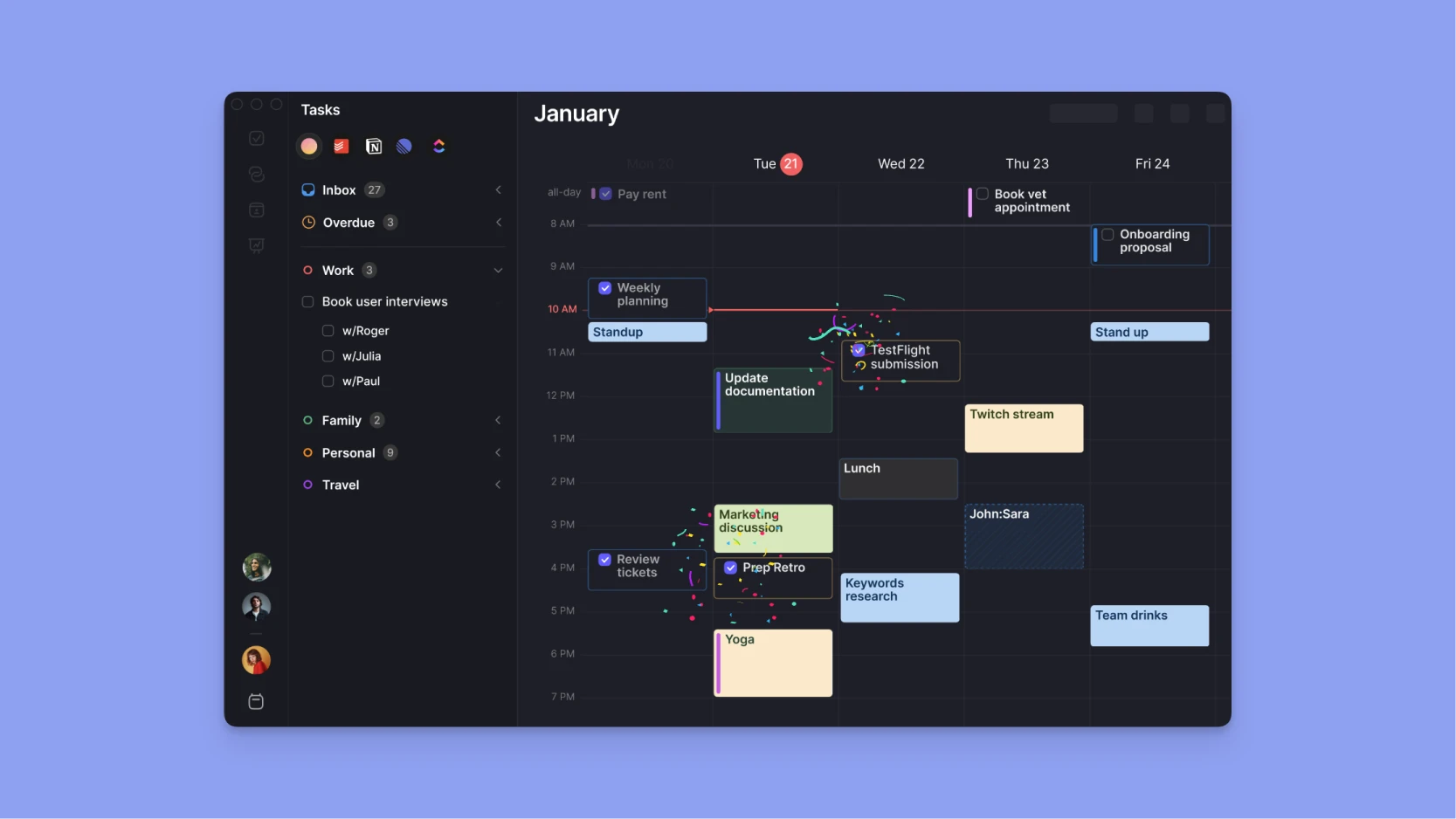
Morgen é construído para trabalho profundo, unificando os teus calendários e gestores de tarefas num único sistema que te mantém focado e te ajuda a praticar trabalho profundo.
Com os Frames do Morgen, podes agendar blocos de tempo recorrentes para trabalho profundo. Os Frames permitem-te usar o Planeador de IA para colocar tarefas específicas nesses blocos com base em fatores como limites de tempo, fonte de tarefas (por exemplo, Notion), prioridade, ou até os teus níveis de energia.
Preços
Morgen tem um período de teste gratuito e começa em $15 por mês.
Avaliações de utilizadores
Um gestor de projetos a fazer malabarismos com cinco projetos de clientes simultâneos partilhou em G2 que Morgen "finalmente manteve os seus calendários Google e Outlook alinhados sem prazos perdidos, o que é uma salvação num ambiente de cliente agitado". Um utilizador do Trustpilot descreveu como abrir o "Planeador de IA cada manhã substituiu o stress de olhar para uma lista de tarefas infinita pela calma de um plano claro e realista, o que tornou muito mais fácil mergulhar em trabalho profundo". Outro revisor do G2 explicou que ao "unificar as suas tarefas Notion e Todoist dentro de Morgen, finalmente pararam de fazer dupla marcação e ganharam confiança de que as obrigações pessoais e profissionais estavam cobertas."
One Sec (iOS)
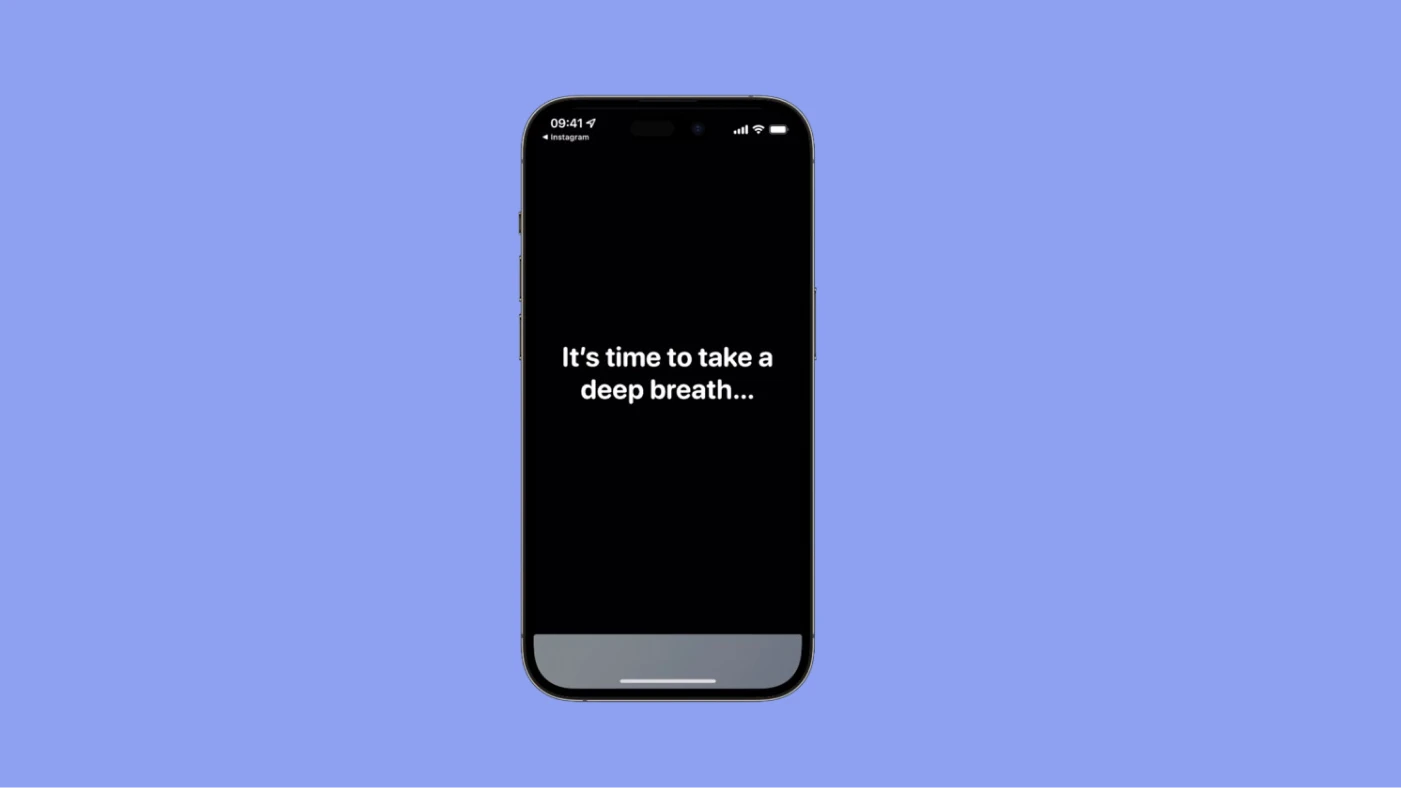
One Sec é desenhado para pessoas que não conseguem resistir a abrir Instagram, Twitter ou TikTok enquanto fazem um simples passeio pelo corredor. Insere uma pausa antes de poderes lançar uma aplicação distrativa, o que suporta diretamente a regra de Newport de abandonar as redes sociais e abraçar o tédio.
Preços
One Sec tem um período de teste gratuito e começa em $3.99/mês.
Avaliações de utilizadores
A maioria das pessoas diz que One Sec ajuda brevemente mas é difícil manter a longo prazo. Abordagens de bloqueio rigoroso ou culpa tendem a falhar após alguns dias. No geral, o consenso é que a interrupção suave e a consciência de hábitos funcionam melhor do que blocos duros, mas nenhuma aplicação "resolve" completamente o problema sem uma mudança de mentalidade ou fluxo de trabalho.
Cold Turkey

Cold Turkey é outra aplicação que te bloqueia de aplicações e websites distrativas sem contorno rápido, reforçando a regra de Newport de abandonar as redes sociais e drenar o superficial.
Preços
Cold Turkey é gratuito.
Avaliações de utilizadores
Utilizadores do Reddit que gostam de Cold Turkey dizem que é um dos bloqueadores mais eficazes porque é difícil de desativar, altamente personalizável (horários, exceções, bloqueio ao nível de subreddit), e reforça estrutura em vez de depender de força de vontade. Lutas comuns ainda existem, sites como Reddit ou YouTube são por vezes genuinamente úteis, por isso as pessoas têm sucesso usando listas brancas, acesso baseado em tempo, ou fricção (digitação de passagens) em vez de proibições totais.
Notion
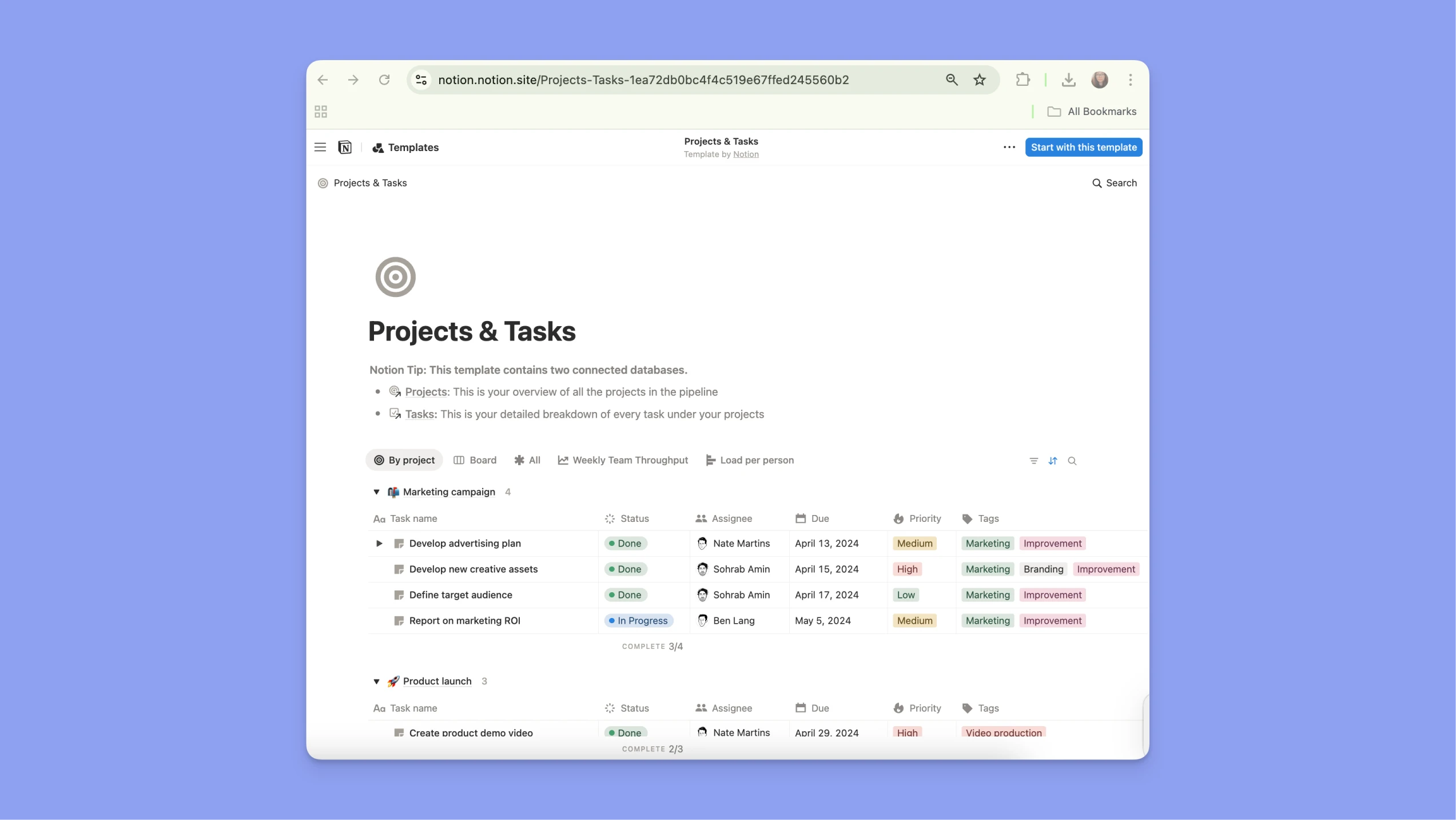
Notion suporta trabalho profundo ao atuar como um centro central para todo o teu pensamento e criação. Oferece-te um espaço estruturado mas flexível para capturar investigação, organizar notas, delinear projetos e rascunhar escrita, para que quando te sentares para uma sessão de trabalho profundo, não sejas distraído procurando entre ferramentas.
Preços
Notion tem um plano gratuito para indivíduos e Plus começando em $12/mês
Avaliações de utilizadores
Pessoas que acham Notion útil principalmente o usam como um "centro central/segundo cérebro" para pós-graduação, investigação e administração de vida, notas + bases de dados ligadas para prazos, planos de estudo, projetos, finanças, receitas e informações de referência para que nada seja esquecido. Muitos concordam que "produtividade falsa" é real, mas culpam a estética/cultura de modelos em vez da ferramenta; dizem que Notion funciona melhor quando mantido simples (páginas básicas, algumas bases de dados, ajustes mínimos). Reclamações comuns são sobre colaboração/pesquisa que pode parecer fraca versus Google Docs, offline é uma grande lacuna, e a maioria dos utilizadores não depende de Notion AI (alguns chamam-lhe má ou irrelevante).
Obsidian
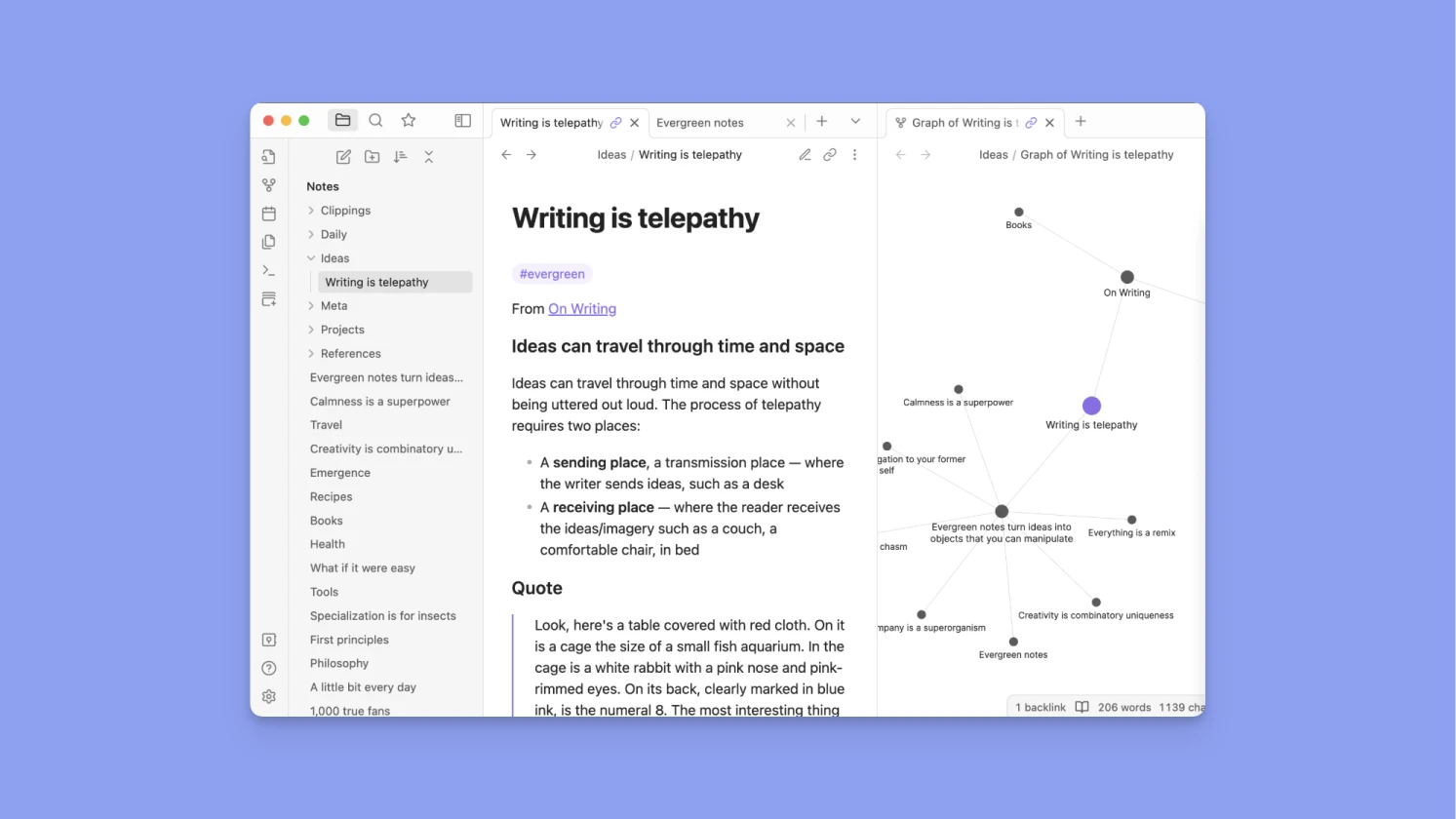
Obsidian fornece estrutura para trabalho profundo ao ligar notas numa base de conhecimento conectada. A sua vista de gráfico, backlinks e configuração local-first ajudam-te a ver relações, manter-te organizado e focar-te sem distração.
Preços
Obsidian é gratuito com complementos pagos opcionais.
Avaliações de utilizadores
Pessoas recomendam Obsidian porque as tuas notas são apenas ficheiros Markdown locais (portáteis, privados, não bloqueados num serviço em nuvem), é rápido no desktop, e podes transformá-lo em quase qualquer coisa através de plugins (tarefas, kanban, calendários, desenho, gráfico de conhecimento, etc.). A maioria dos utilizadores não paga uma subscrição a menos que queira Obsidian Sync/Publish; muitos sincronizam gratuitamente via Dropbox/Syncthing ou similar. A principal desvantagem que as pessoas relatam é a curva de aprendizagem/"armadilha de ajustes" (gastar tempo configurando em vez de escrever), além de uma experiência móvel mais fraca e desconforto com expectativas Markdown/WYSIWYG.
Auscultadores com cancelamento de ruído e Brain.fm
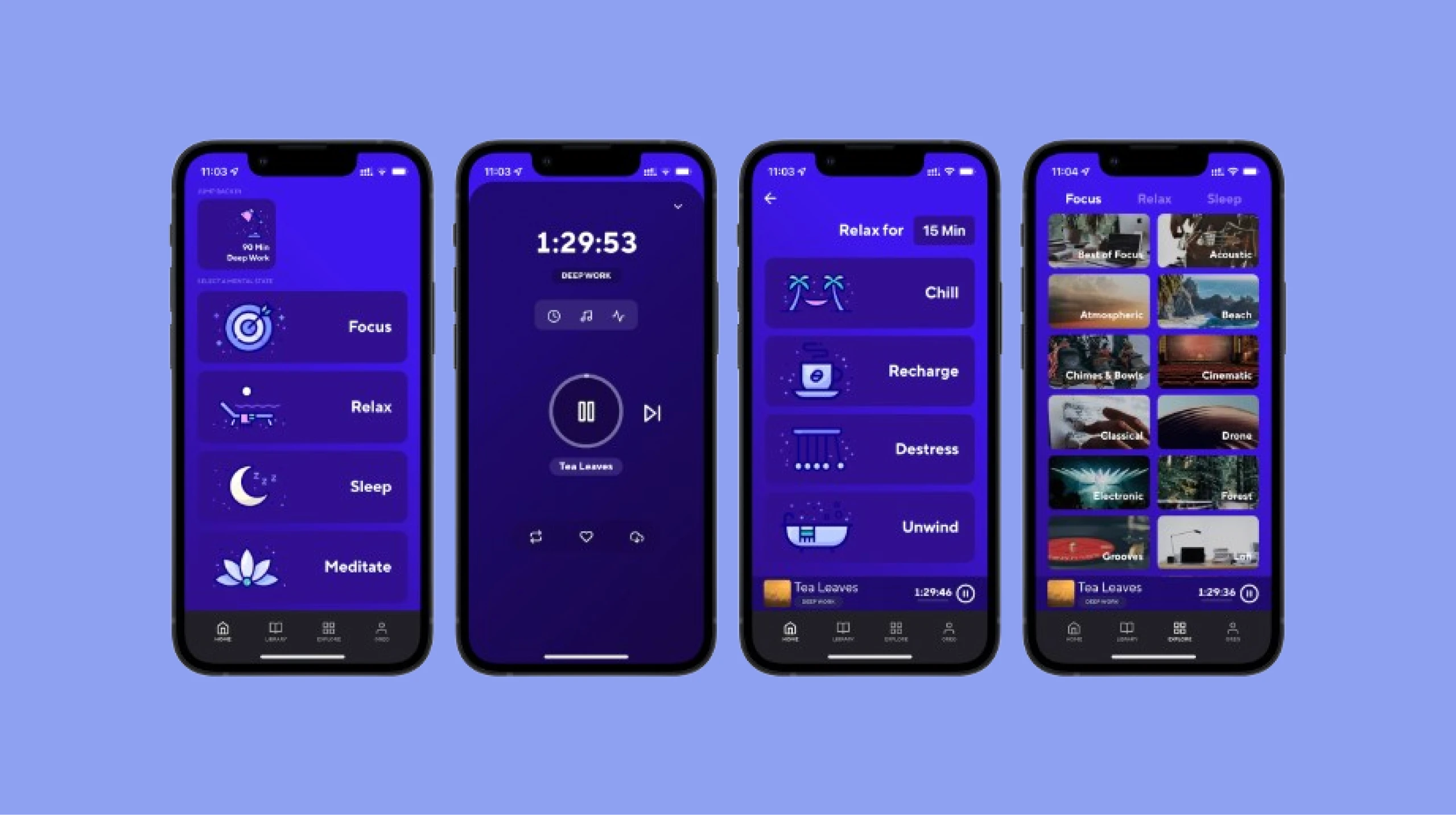
Os auscultadores com cancelamento de ruído criam um ambiente livre de interrupções superficiais, enquanto Brain.fm fornece música desenhada para melhorar o foco.
Preços
Os auscultadores variam de $70–$500, enquanto Brain.fm tem um período de teste gratuito e subscrição começando em $9.99/mês.
Avaliações de utilizadores
Alguns utilizadores dizem que os ajuda a entrar num estado calmo, focado ou relaxado (especialmente para alívio de stress ou sono) quando tratado como puro ruído de fundo. Outros acham as faixas demasiado repetitivas e irritantes ao longo do tempo, com benefícios a desaparecerem após 10–15 minutos, tornando o preço mensal difícil de justificar.
Cadernos e canetas analógicos

Os cadernos analógicos permanecem ferramentas atemporais para capturar ideias e planear sem ecrãs. Reforçam a tolerância ao tédio e suportam rituais de começar e terminar sessões de trabalho profundo.
Preços
Os preços variam de apenas alguns euros a diários premium.
Bento Focus
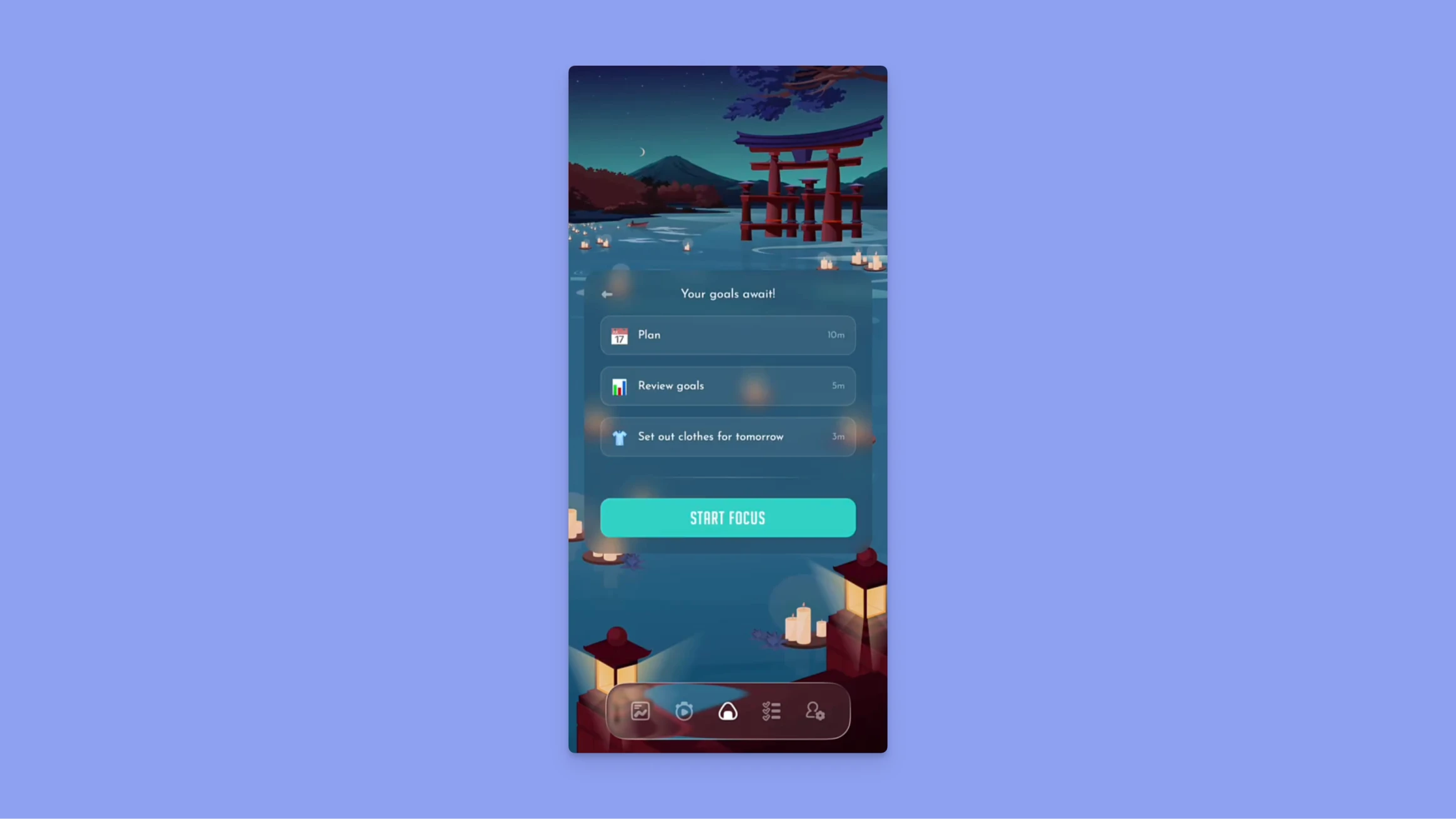
Bento Focus fornece estrutura para produtividade ao transformar as tuas tarefas numa caixa de foco. Com temporizadores integrados, insights e rotinas personalizáveis, ajuda-te a canalizar energia para o que importa enquanto minimizas distrações.
Preços
Bento Focus oferece um plano gratuito e um plano premium começando em $4.99.
Avaliações de utilizadores
Na App Store, os revisores destacam como a caixa de foco de três tarefas os ajuda a evitar sobrecarga e começar rapidamente. Utilizadores no Reddit apreciam os sons otimizados para ADHD e rotinas, notando que Bento Focus torna mais fácil manter-se com sessões Pomodoro e rastrear o progresso diário sem culpa.
Pensamentos finais
Trabalho profundo é uma competência, não um interruptor. Requer planeamento, proteção e prática. A melhor forma de começar é simples: agenda apenas uma sessão de trabalho profundo amanhã. Ferramentas como Morgen tornam mais fácil construir um ritmo, proteger o teu tempo e transformar trabalho profundo num hábito em vez de uma esperança.
Tens dúvidas? Envia-me uma mensagem no Discord ✉️
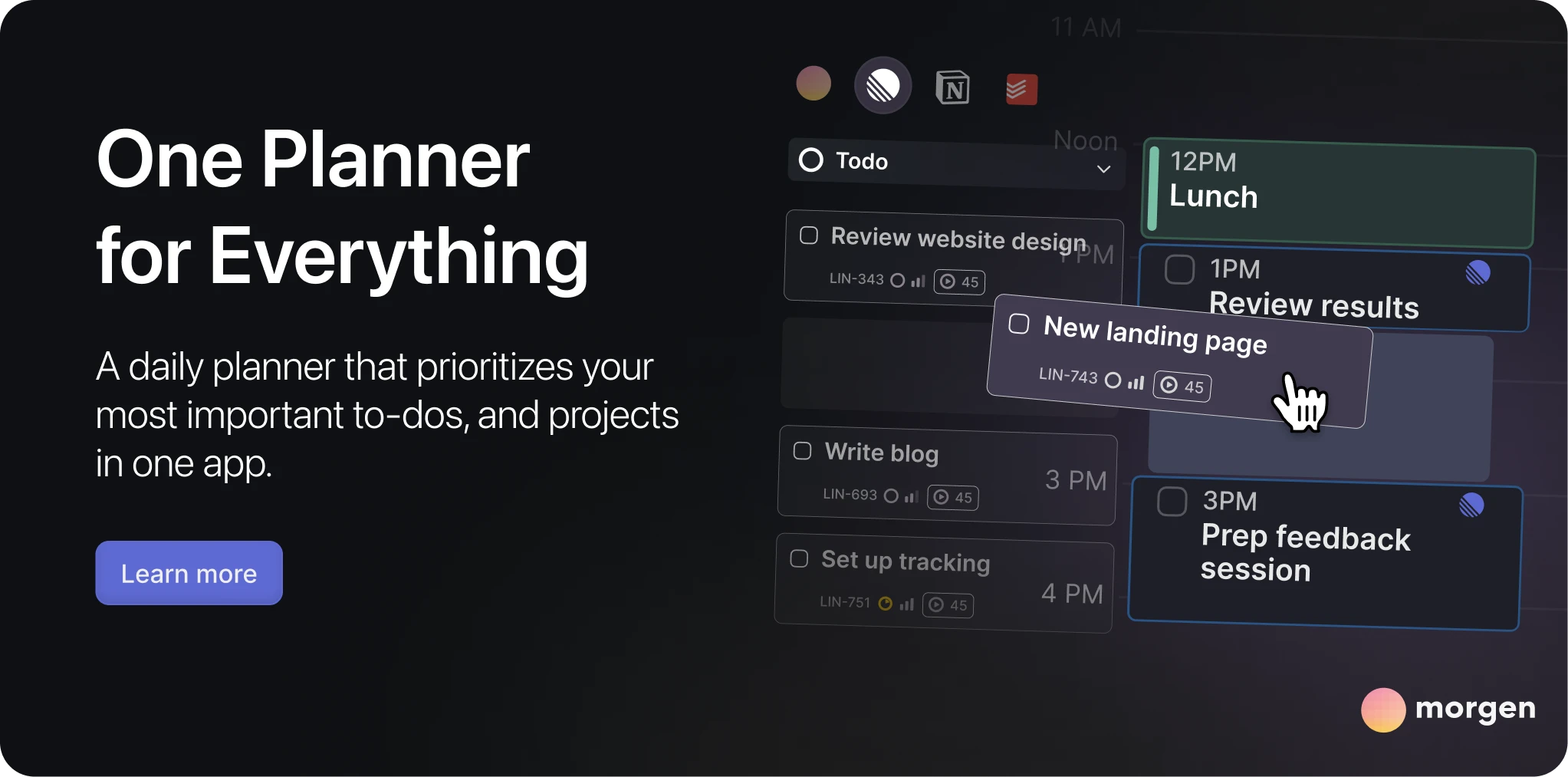
.svg)

.svg)
.webp)
